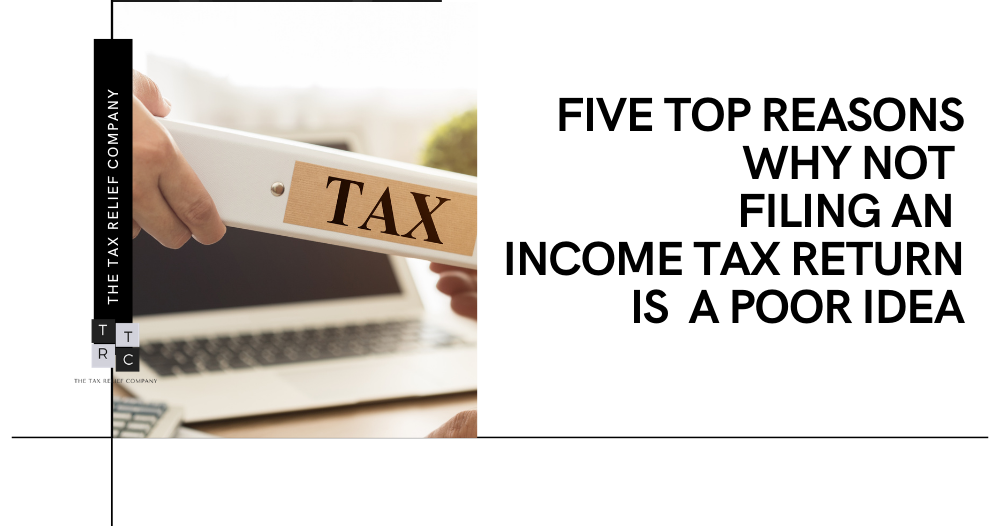Five Top Reasons Why Not Filing an Income Tax Return is a Poor Idea
Benjamin Franklin once wrote, “in this world, nothing can be said to be certain, except death and taxes.” With the 2020 income tax return filing deadline of April 15, 2021, not too far down the road, many taxpayers dread having to prepare their income tax return and fear owing money to the IRS. This is especially true for those that did not file a tax return in prior years. Failure to file returns is a serious problem that does not go away. Whether you owe money to the IRS or are entitled to a refund of taxes you paid, there are consequences for not filing an income tax return. Here are five top reasons why not filing an income tax return is a poor idea:
You could be liable for penalties.
- Late filing penalties. If you file more than 60 days after the due date of the return, the penalty can be up to a maximum of 25 percent of the unpaid tax.
- Late payment penalties.
- Filing an extension to file your return does not extend the due date for the payment of taxes. Late payment penalties accrue at a rate of 0.5 percent of the unpaid taxes per month, up to a maximum of 25 percent of the unpaid tax.
- Fraudulent failure to file penalties. If the failure to file your return is determined to be fraudulent, the penalties for late filing of that return can be increased, and the penalty can be up to a maximum of 75 percent of the unpaid tax.
You could be charged with a crime.
- Failing to file a tax return can be classified as a federal crime punishable as a misdemeanor or a felony. Willful failure to file a tax return is a misdemeanor. In cases where an overt act of evasion occurred, willful failure to file may be elevated to a felony. If you are charged with a criminal tax violation, the punishment can be severe and may include fines and jail time.
The statute of limitations on assessment and collection does not start to run until a return is filed.
- Generally, the IRS has three years from the filing of a return to audit a tax return and propose an assessment. Once assessed, the IRS generally has 10 years from the date of that assessment to collect an outstanding tax bill. While these periods can be extended under certain circumstances, neither of these periods of limitation start to run until a return is filed by you or on your behalf by the IRS. Consequently, the IRS can assess and collect on the tax many years later.
The IRS can prepare a tax return for you.
- Also known as an SFR or substitute for return. Every year, the IRS receives income information from third parties using various forms, including Form W-2 and Form 1099. The IRS can use this information to prepare a tax return for you, and you could lose out on exemptions, deductions, and credits to which you might otherwise be entitled.
You could lose your entitlement to a refund.
- If you are entitled to a refund, you are generally not penalized for filing late. However, you only have three years from the due date of the return to file the return and claim your refund. After that three-year period, any unclaimed refund is automatically turned over to the government. Further, if your late-filed return is subsequently audited, resulting in an underpayment of tax, the late filing and late payment penalties will be applied.
If you have unfiled tax returns and you likely owe money to the government, you should speak with an experienced tax resolution specialist before filing those returns.
While the above consequences seem formidable, an experienced tax resolution specialist can help you avoid the worry and stress associated with unfiled returns. As an Enrolled Agent (EA )and Certified Tax Resolution Specialist (CTRS), I have the knowledge and experience to resolve your tax problem. Contact Jeffrey Schneider, EA, CTRS at 877-355-8010 or by email, jeff@thetaxreliefco.com for assistance.



